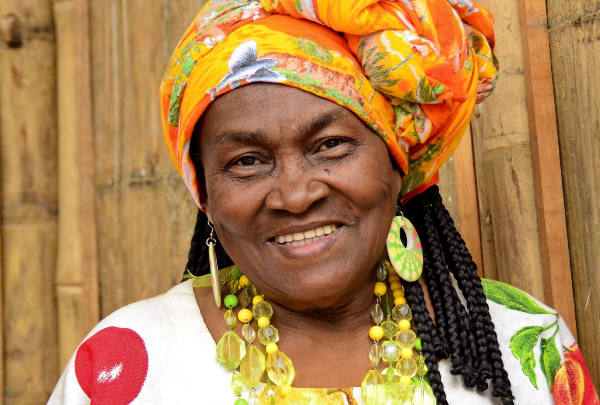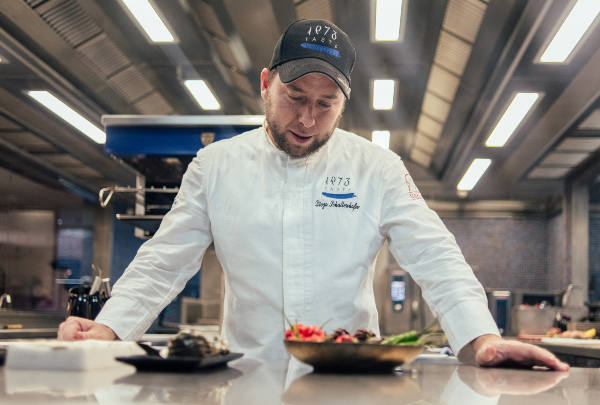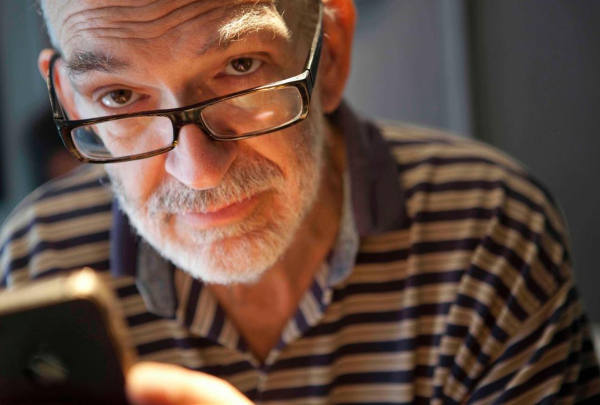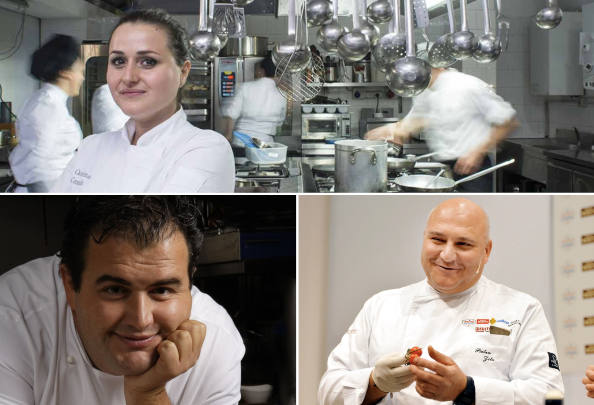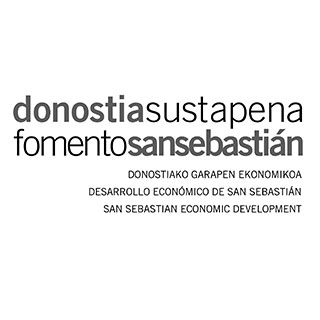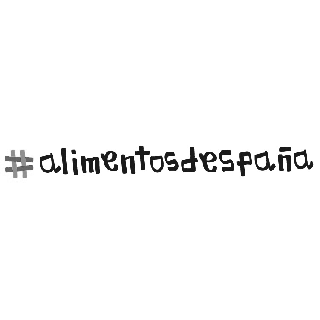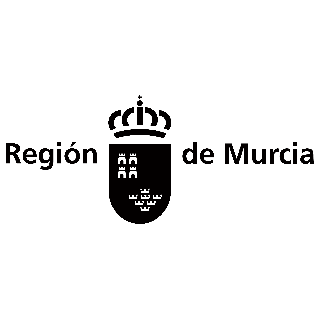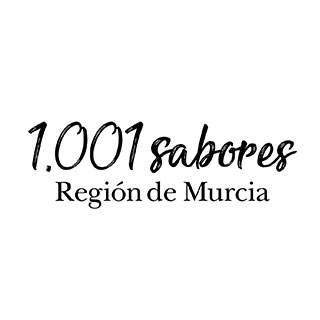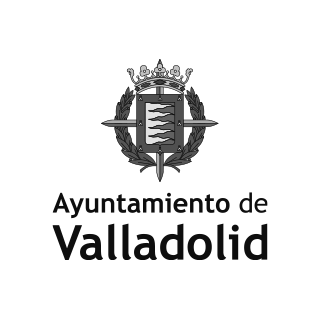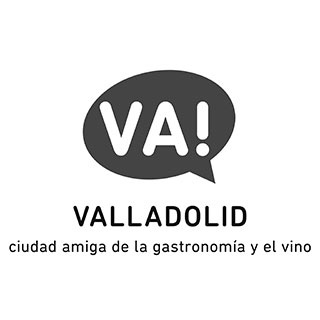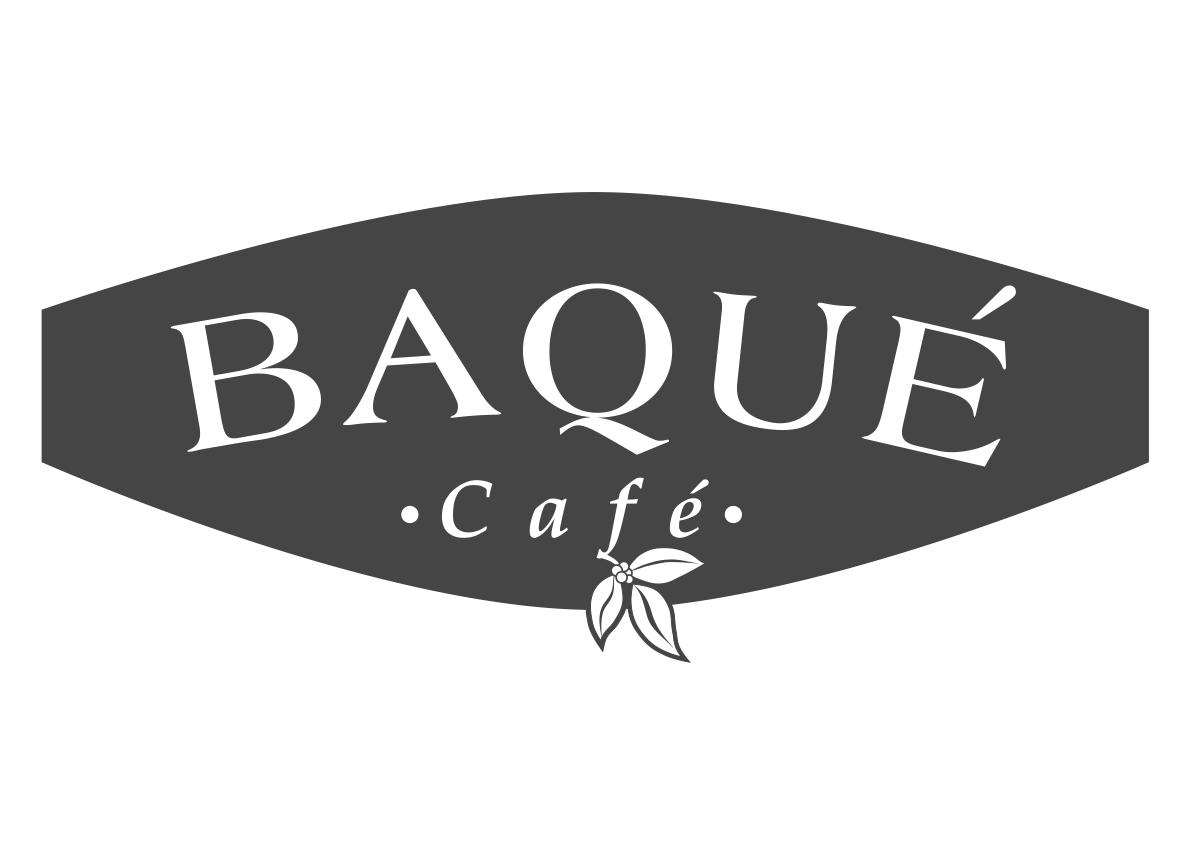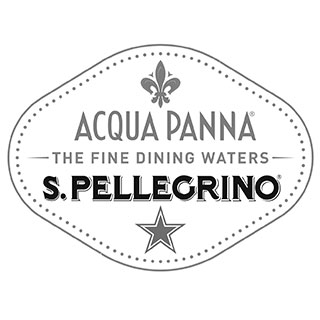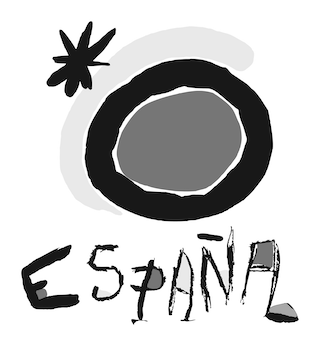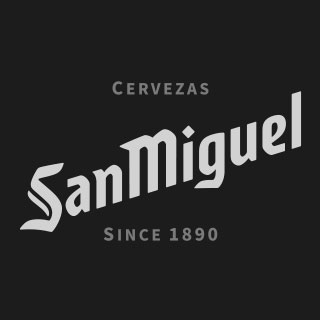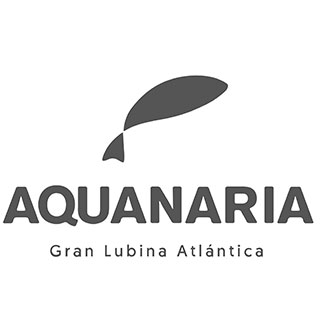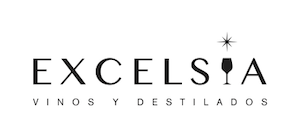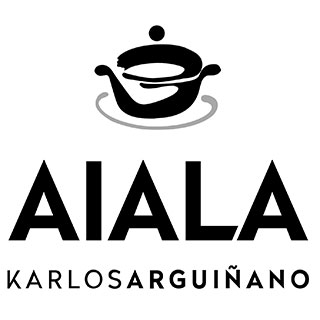Interview
Alexandre Mazzia: “Spanish cuisine is simple and complex at the same time. It's marvellous”
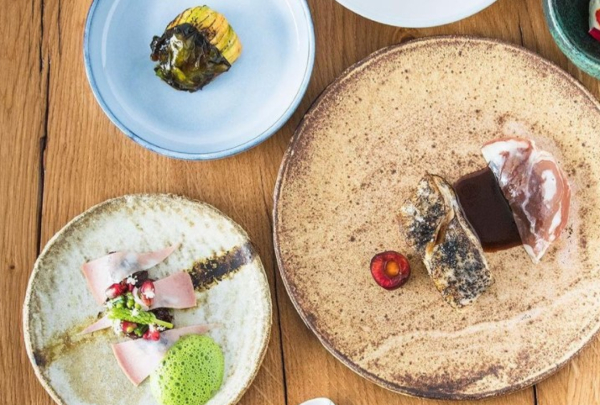
Alexandre Mazzia, the chef from the Republic of Congo now resident in France, a disciple of Gagnaire and also of Santi Santamaría, was the Michelin Guide's only three-star entry this year with his restaurant AM. An establishment guided by the values gleaned in the course of his professional sports career, with a gastronomic range inspired by his childhood in Africa.
What will you be talking about at San Sebastian Gastronomika?
We'll be talking about our main features, such as chilli, roasting, spices and smoke. They're the backbone of our history. To do this we'll all create a menu, to give the public a better understanding of our universe.
A universe influences by your childhood in the Congo … could you tell us about that?
Of course - I was born in Africa, in Pointe-Noire, where I lived until I was 15. I was born at Clinique des Manguiers, and I lived by the sea, on the famous wild coast! It was impossible not to be moved by it. The sea, sea produce, the spices, the boucané (a meat recipe typical of Africa and the Caribbean), the fruit I ate during my childhood, such as papayas and mangos, is unforgettable. And a fire down by the sea by way of a barbecue, coming back from a fishing trip in a canoe, not to mention coconut stew ...
All this is my DNA, it's what I am.
You were a professional basketball player for years. Is there anything left from that period?
Sport gave me an education. I believe that collective values, mutual assistance, respect and the team spirit are essential.
Perseverance, curiosity, assiduity, pugnacity, and above all, passion, form part of our attributes. My management style contains an analogy with sport at the highest level. The spirit of the common good is the key factor. But what's most important is to educate and train your palate as a way of doing things.
After the pandemic, it seems the catering business has more of an interest in sustainability, not just in cookery, but also in team work. What do you think?
The pandemic helped us adapt with the creation of the "Michel" food-truck. This also kept us in touch with our producers, which is vital for some of them. The food-truck menu had hand-caught scallops, our “hot Mazzes” (from "hot dog" and "Mazzia") with our home-made lamb-neck sausages, and vegetable or truffle sandwiches. It was a transversal place.
During the pandemic, the environmental path we trod made a lot of sense. Permaculture, waste recycling etc. - the local fabrics form part of what we are.
Over a certain period, a number of restaurant owners made changes to their gastronomic fare. A lot of them realised the advantages of this. For staff, and also in terms of production or wastage. A virtuous circle. By producing less and going for what's essential, menus have been downsized to give their very best. It's a quintessence.
You claim that cooking is artistic expression, and during one interview you said it's an important feature on diners' plates, isn't that right?
I believe that cookery is a vehicle of expression. But I'm not an artist, and I don't consider myself an artist. That would be pretentious.
I'm lucky enough to be able to work with the product, and transform it to tell my story. It's marvellous and fabulous. I feel full of vitality at every sitting.
The main theme at San Sebastian Gastronomika Euskadi Basque-Country this year is dialogue between France and Spain. How has the boom in Spanish gastronomy been perceived in France?
I had the luck and honour of working with Santi Santamaria. Spain has been an important component of my career. It has magnificent products, and an incredible sense of creativity. Spanish cuisine is simple and complex at the same time. It's marvellous.
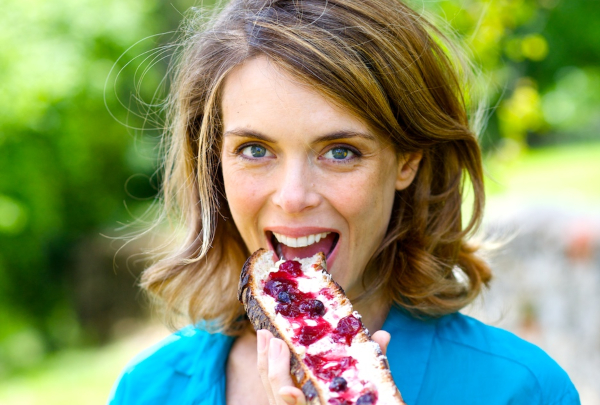
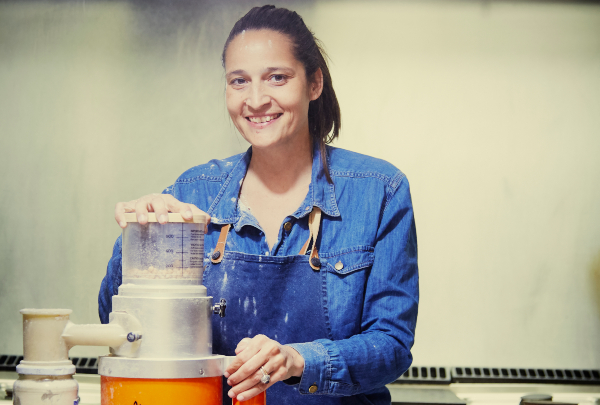
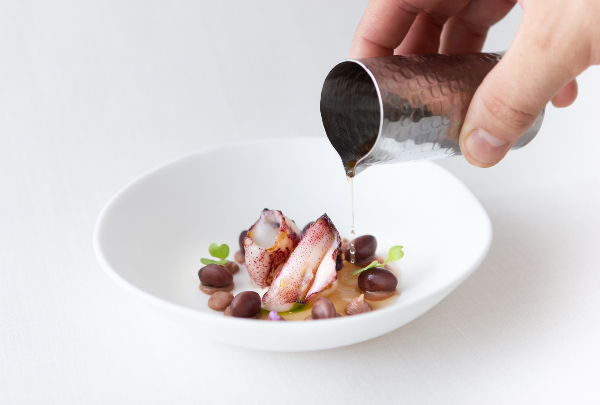
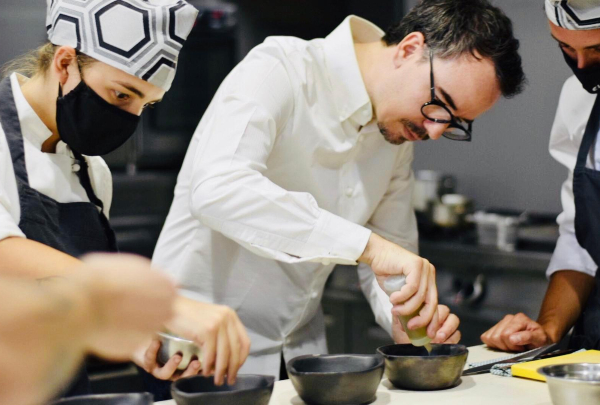
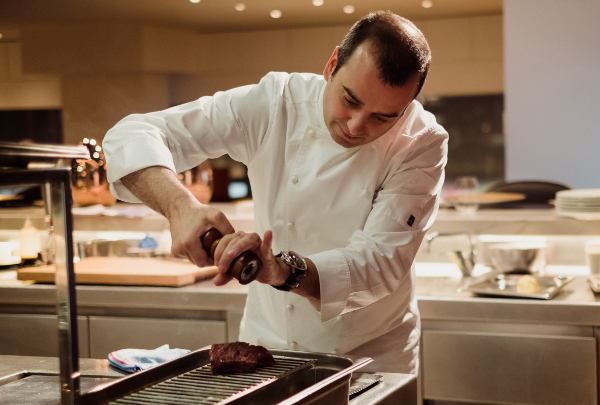
.jpg)
